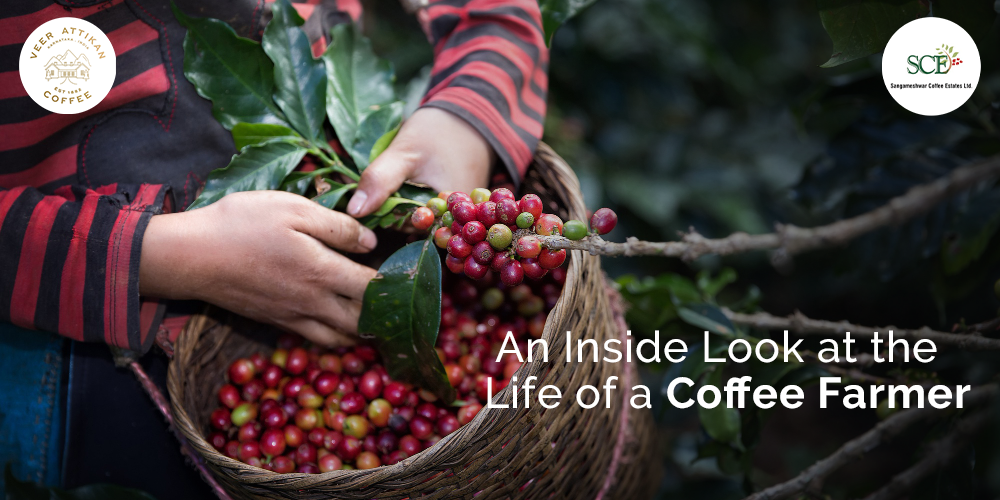Coffee is one of the most popular beverages in the world, enjoyed by millions of people every day. But have you ever considered the everyday tasks and obstacles that coffee farmer in India face? These diligent people play a crucial part in delivering our favorite beverage, yet their lives are often cloaked in mystery. In this blog, we will take a closer look at the lives of coffee farmers in India, offering a glimpse into their world.
The day starts early for coffee farmer in India, typically before sunrise. The first chore of the day is to check on the coffee plants, which require care and attention. It involves inspecting the leaves for any signs of disease, monitoring the soil moisture levels, and removing any weeds that may have sprouted up overnight. Coffee plants are delicate and require specific conditions to flourish, so farmers are vigilant in their care.
Coffee producers in India
The weather is a huge barrier for coffee producers in India. The coffee plants require specific climatic conditions to grow, and any deviation from the ideal conditions can affect the quality of the coffee beans. During the monsoon season, the coffee plants are susceptible to diseases, and the coffee farmer need to take extra care to protect the plants. In addition, during the summers, the farmers must ensure that the plants get enough water to survive the scorching heat.
Once the plants have been checked, it’s time to harvest the coffee beans. It is a labour-intensive process that involves picking the coffee cherries by hand. Only the finest cherries advance to the next step of treatment after being selected by quality. It can take many hours, and the task is physically demanding, with farmers frequently bending down for lengthy amounts of time.
Following sorting, the cherries are generally processed using one of two methods: dry processing or wet processing. Dry processing involves laying the cherries out in the sun to dry, which can take up to a week. Before drying the beans, wet processing comprises washing the cherries and removing the outer coats. Both procedures need considerable attention and care, as the beans might deteriorate if not handled right.
The beans are ready for roasting after they have been processed. Farmers often roast the beans in small batches, carefully monitoring the temperature to ensure the beans are roasted to perfection. Roasting coffee beans is an art form, and producers take great delight in creating high-quality beans that coffee enthusiasts across the globe will appreciate.
Best Indian Coffee Farmer
Of course, there are many challenges that coffee farmers in India face daily. One of the biggest is climate change. Furthermore, coffee production requires substantial investments in resources such as fertilizers, insecticides, and labor. This can be challenging for small-scale growers who lack access to funding and professional help. Moreover, coffee prices can be volatile, and farmers often struggle to get fair prices for their crops. This takes place due to the dominance of a middleman in the supply chain. Finally, coffee farming is also labor-intensive and requires skilled workers, which can be tricky to find and retain in rural areas where job opportunities are limited.
Despite these challenges, coffee farmers in India remain committed to their craft. They take pride in producing high-quality coffee beans that people worldwide love. By showcasing a glimpse into their daily activities and challenges, we hope to raise awareness of the struggle behind the coffee production.
Coffee farming is not just a means of livelihood for the farmers in India; it is also a way of life. The coffee plantations are often passed down from generation to generation, and the farmers take immense pride in their work. They are dedicated to providing the highest quality coffee beans and are always seeking to enhance their methods. Coffee farming has also brought about a sense of community among the farmers. They frequently gather to share their experiences and information, which has assisted them in overcoming the obstacles they confront.






